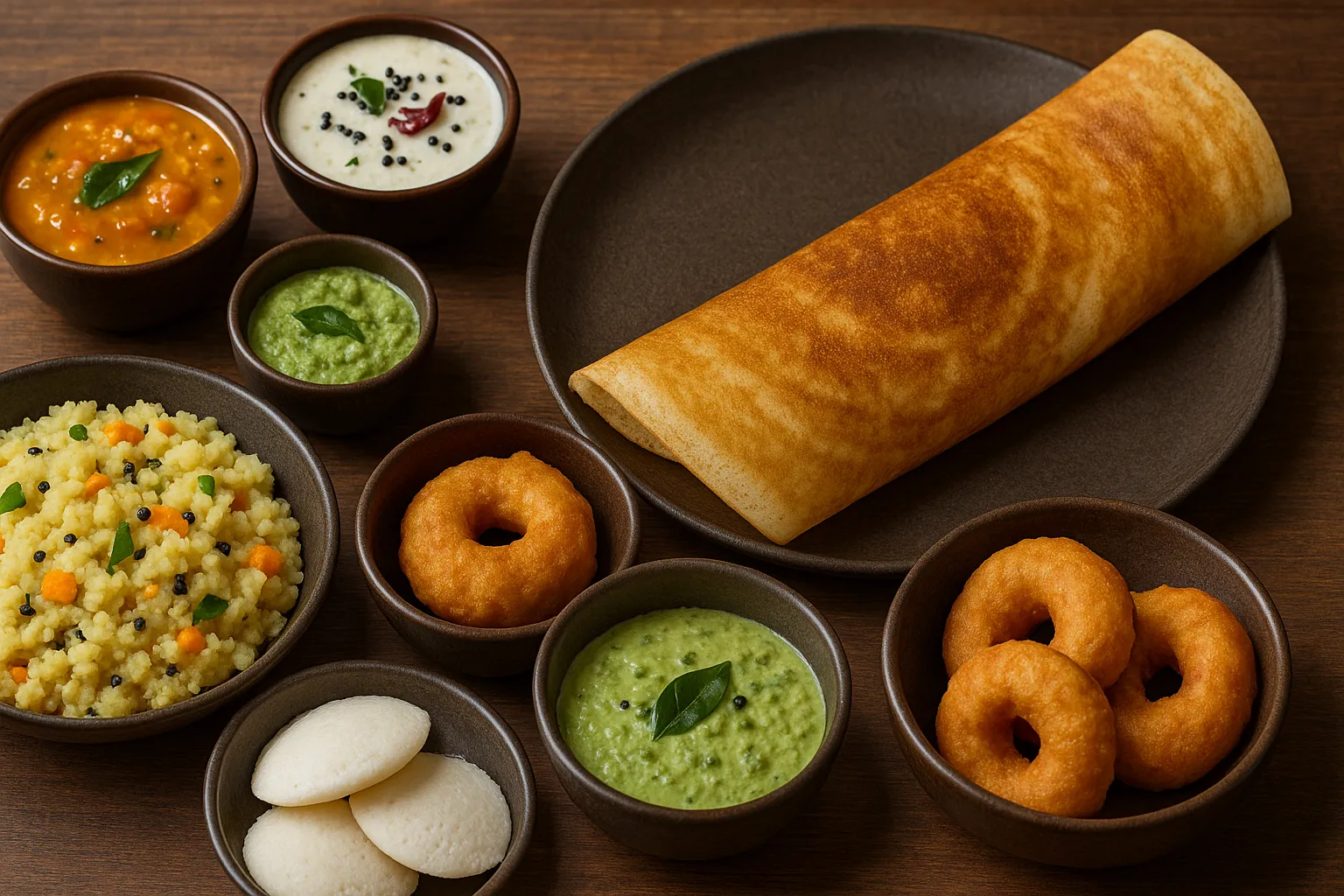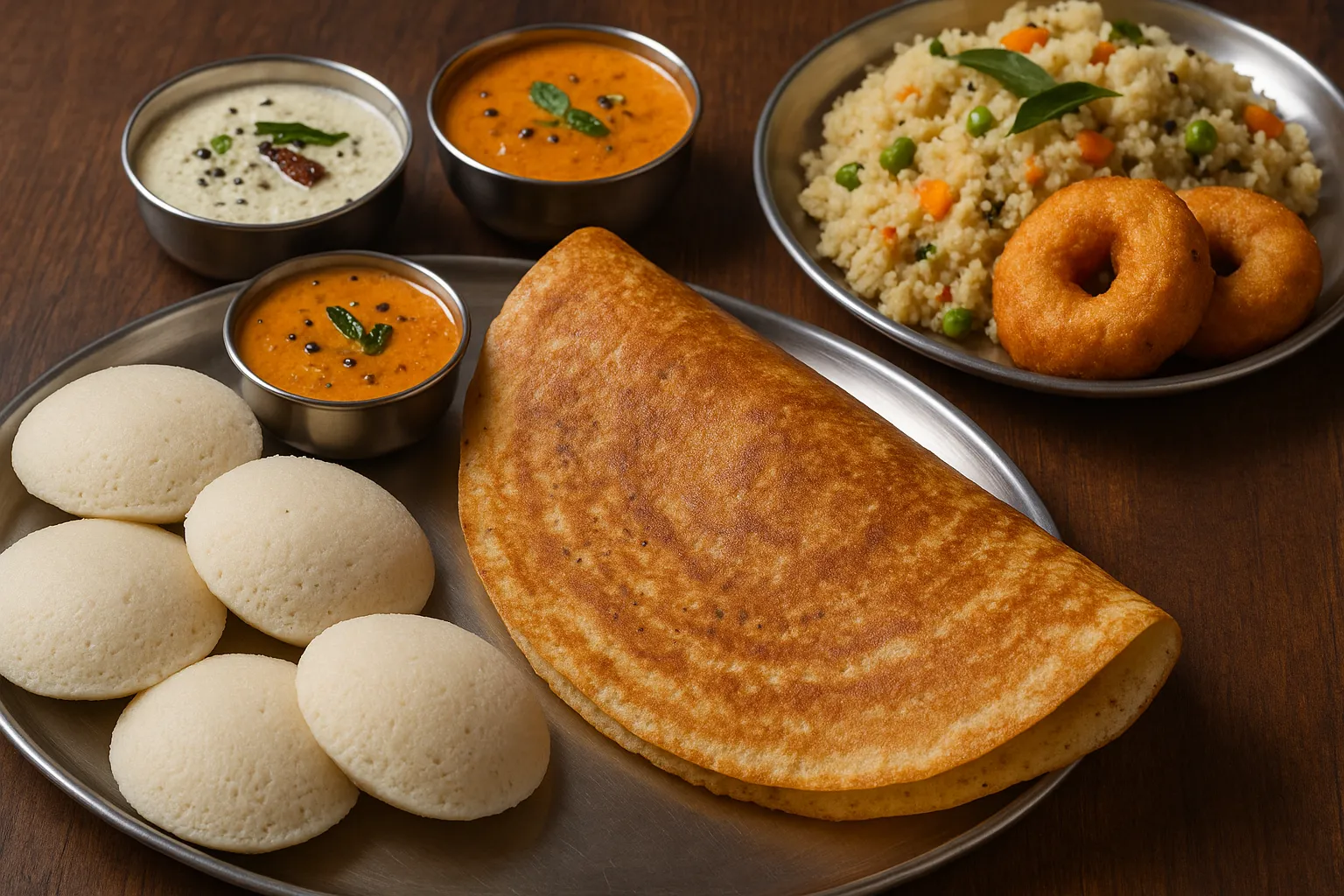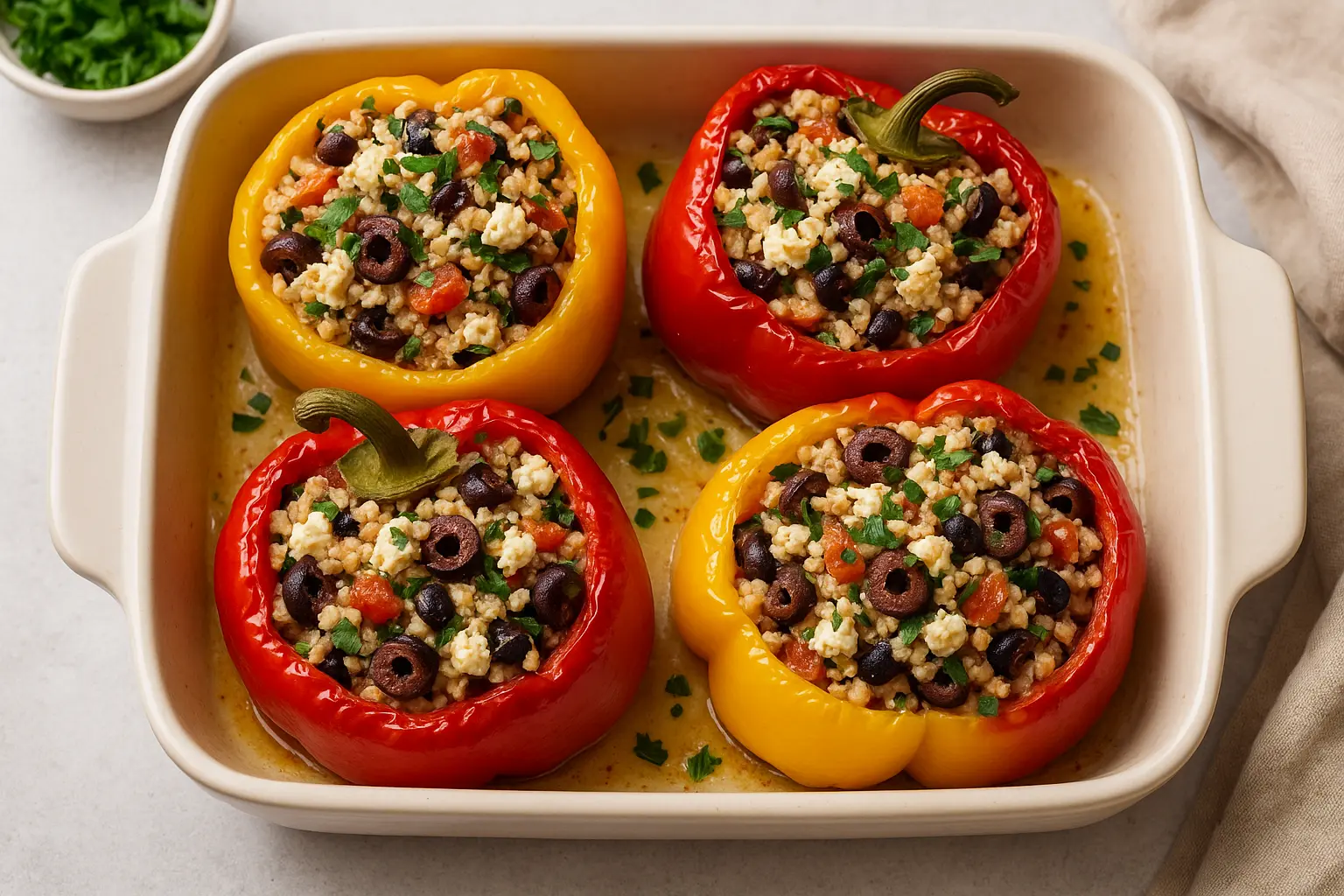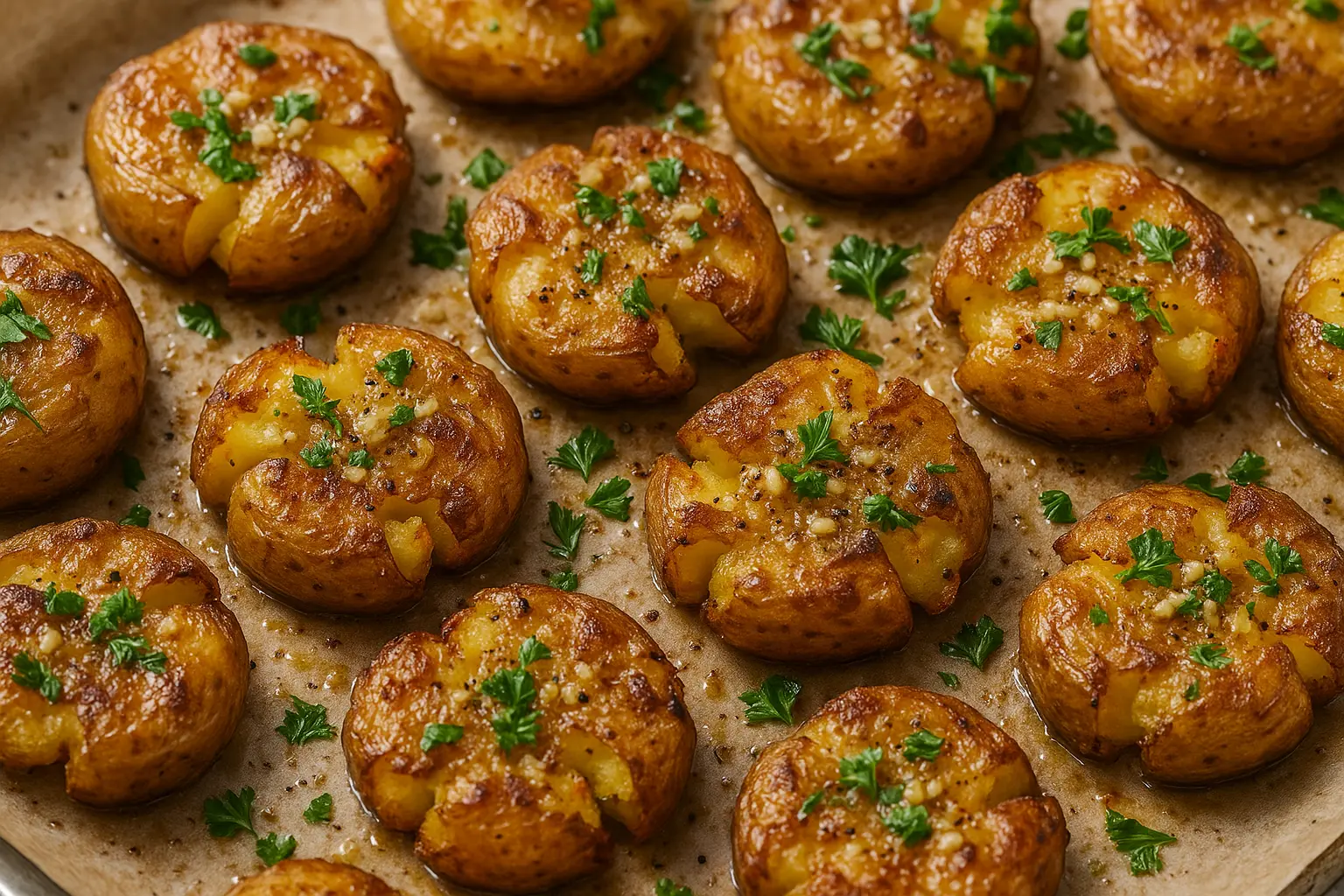South Indian Breakfasts to Start Your Day Right
A good breakfast sets the tone for the entire day. In South India, mornings are made extra special with an array of vibrant, flavorful, and wholesome dishes. Think soft idlis with spicy sambar, crispy dosas with chutney, fluffy upma, pongal with ghee, or piping hot filter coffee—all served fresh from the stove. These aren’t just meals; they are rituals, bringing comfort, nutrition, and cultural connection.
In this comprehensive guide, we’ll explore the most iconic South Indian breakfast recipes, their regional variations, stovetop cooking methods, and tips to recreate the magic in your own kitchen.

1. The Importance of South Indian Breakfast
Why South Indian Breakfast Is So Special:
Wholesome & Balanced: Combines carbs (idli, dosa), proteins (lentils, legumes), and fiber (vegetables).
Vegetarian-Friendly: Most traditional recipes are 100% vegetarian.
Made from Pantry Staples: Uses rice, lentils, spices, coconut, and seasonal vegetables.
Stovetop-Cooked: No fancy gadgets—just your gas burner and basic cookware.
Flavor-Packed: South Indian spice blends and chutneys elevate simple ingredients.
2. Essential Ingredients in a South Indian Pantry
To master these breakfasts, stock up on:
Rice & Idli Rava
Urad dal (split black gram)
Chana dal, Toor dal, Moong dal
Tamarind paste, Curry leaves, Mustard seeds
Green chilies, Ginger, Asafoetida (Hing)
Coconut (fresh/frozen/dried)
Rava (semolina), Flattened rice (poha)
Vegetables like carrots, onions, tomatoes, beans
Ghee, Oil (preferably coconut or sesame oil)
3. Classic South Indian Breakfast Recipes
A. Idli – The Soft Steamed Delight
What Is It?
Fermented rice-lentil batter steamed into fluffy cakes.
Why It’s Loved:
Light, gut-friendly, protein-rich, and great for kids, adults, and elderly alike.
How to Make (Stovetop):
Soak 1 cup urad dal and 2 cups idli rice overnight.
Grind separately, mix, and ferment for 8–12 hours.
Pour batter into greased idli molds.
Steam in a traditional idli cooker or pressure cooker (no whistle) for 10–12 minutes.
Pair With: Coconut chutney, tomato chutney, and sambar.
Pro Tip: Use a bit of fenugreek seeds to aid fermentation.
B. Dosa – The Crispy Crepe
What Is It?
Thin, golden crepes made from the same idli batter.
Variations:
Masala Dosa (with spiced potato filling)
Onion Dosa
Set Dosa (small fluffy dosas)
Neer Dosa (from Karnataka, made with rice batter, no fermentation)
Pesarattu (green gram dosa from Andhra)
How to Cook (Stovetop):
Heat a flat tawa or non-stick pan.
Pour a ladle of batter and spread thinly.
Drizzle oil/ghee on edges.
Cook till crisp; flip if needed.
Serve With: Coconut chutney, onion chutney, or sambar.
C. Upma – Semolina Savory Porridge
What Is It?
Roasted semolina (rava) cooked with tempered spices and veggies.
Key Ingredients:
Rava, mustard seeds, urad dal, chana dal, curry leaves, green chili, ginger, veggies (optional), water.
Steps:
Roast semolina till aromatic; set aside.
In a pan, temper mustard, dal, chilies, curry leaves.
Add onions, sauté; add water and salt.
Once water boils, slowly stir in rava.
Cook till water absorbs and upma is fluffy.
Toppings: Ghee, chopped coriander, grated coconut, lemon juice.
D. Pongal – South Indian Comfort Bowl
What Is It?
Creamy mix of rice and moong dal, tempered with pepper, ginger, and ghee.
Varieties:
Ven Pongal (savoury)
Sakkarai Pongal (sweet, festive)
How to Make (Stovetop):
Dry roast ½ cup moong dal.
Pressure cook with ½ cup rice, 3 cups water.
Temper with ghee, cumin, pepper, ginger, cashews.
Mix into cooked dal-rice mash. Salt to taste.
Tastes Best With: Coconut chutney, sambar, or gothsu.
E. Medu Vada – The Crispy Savoury Donut
What Is It?
Deep-fried doughnut-shaped fritters made of urad dal.
Texture: Crispy outside, fluffy inside.
How to Make:
Soak urad dal for 4–5 hours. Grind with minimal water.
Add chopped onions, curry leaves, pepper.
Wet your hands, shape the vada, and deep fry until golden.
Serve With: Coconut chutney and hot sambar.
Stovetop Tip: Maintain medium heat to avoid undercooked centers.
4. Regional Breakfast Specials
Tamil Nadu
Koozh – Fermented finger millet porridge
Idiyappam – Steamed string hoppers made from rice flour
Kuzhi Paniyaram – Made from leftover dosa batter, cooked in appe pan
Andhra Pradesh
Pesarattu – Green gram dosa, protein-packed
Upma-Pesarattu Combo – Loved across the state
Punugulu – Crispy fritters from dosa batter
Karnataka
Bisi Bele Bath – Rice-lentil mix with tamarind and veggies
Ragi Mudde – Finger millet balls with sambar
Set Dosa – Thick, soft dosas served in sets of 2 or 3
Kerala
Appam – Bowl-shaped fermented rice pancakes
Idiyappam with Stew – Soft rice noodles with coconut milk curry
Puttu – Steamed rice and coconut cylinders, often paired with banana or kadala curry
5. Sambar & Chutney – The Soul of South Indian Breakfast
Sambar
Made from toor dal, tamarind, veggies, and a sambar spice mix. Serve hot with idli, dosa, pongal, or vada.
Coconut Chutney Variations:
Basic Coconut Chutney – Coconut, green chili, ginger, tempered with mustard seeds and curry leaves.
Tomato Chutney – Tangy, red, made from sautéed tomatoes, garlic.
Onion Chutney – Spicy, rustic flavor.
Mint Chutney / Coriander Chutney – Refreshing and aromatic.
6. Breakfast Beverages to Accompany
Filter Coffee – Authentic South Indian decoction with frothy milk.
Masala Chai – Spiced milk tea with ginger, cardamom.
Buttermilk (Neer Mor) – Spiced yogurt drink with curry leaves and green chili.
Sukku Coffee – Herbal drink made with dry ginger and palm jaggery.
7. Quick & Easy South Indian Breakfast Ideas (Under 30 Min)
Aval Upma (Poha) – Flattened rice tossed with spices and peanuts.
Bread Upma – Using leftover bread with onion, tomato, and seasoning.
Vegetable Semiya (Vermicelli) Upma – Quick-cooking and satisfying.
Oats Pongal – Healthy twist using oats and moong dal.
8. Meal Prep Tips for Busy Mornings
Batter Prep:
Make large batches of idli/dosa batter weekly and refrigerate.Chutney Base:
Prepare and freeze portions of coconut chutney without tempering.Dry Mixes:
Keep rava roasted, ready to make upma instantly.Boiled Lentils:
Cook and store dal in the fridge to speed up sambar or pongal prep.
9. Nutritional Benefits of South Indian Breakfasts
| Dish | Key Nutrients | Digestive Benefit |
|---|---|---|
| Idli | Protein, fiber | Fermented, easy on gut |
| Dosa | Carbs, protein | Fermented batter aids digestion |
| Pongal | Protein, good fat (ghee) | Comfort food, easily digestible |
| Upma | Iron, fiber (veggies) | Light and filling |
| Vada | Protein (urad dal) | Energizing, crispy treat |
10. South Indian Breakfast – A Family Affair
In many homes, breakfast is a time for bonding. Sitting together with steaming hot idlis or masala dosas, sipping filter coffee, and enjoying the familiar flavors—this daily ritual strengthens not just the body but also family ties.
11. Final Thoughts: Start Your Day the South Indian Way
Whether you're from the south or simply love Indian food, South Indian breakfasts offer a flavorful, nutritious, and satisfying start to your day. Rooted in tradition but adaptable to modern kitchens, these dishes are a celebration of spices, balance, and wholesomeness. All you need is a stovetop, some pantry staples, and a little love.
So tomorrow morning, skip the cereal and bring on the idlis and chutneys!

Sienna Lawson
Sienna Lawson is a passionate digital content creator with a flair for storytelling and social trends. Based in Sydney, she specialises in lifestyle and wellness topics, crafting engaging narratives for modern audiences.
Leave a comment
Your email address will not be published. Required fields are marked *
Related posts
Creamy Spinach Artichoke Pasta Bake
You might be interested in
-
Mediterranean Stuffed Peppers
Nov 01, 2025 4,234 views -
Crispy Smashed Potatoes with Garlic Butter
Nov 01, 2025 17,869 views



